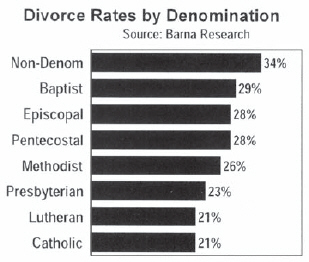A Fresh Perspective on Submission and Authority in Marriage -- By: Dennis J. Preato
Journal: Priscilla Papers
Volume: PP 19:1 (Winter 2005)
Article: A Fresh Perspective on Submission and Authority in Marriage
Author: Dennis J. Preato
PP 19:1 (Winter 2005) p. 20
A Fresh Perspective on Submission and Authority in Marriage
Dennis J. Preato, Master of Divinity, magna com laude, is a graduate of Bethel Seminary San Diego. He is the author of “A Female Apostle: Was Junia a Man or a Woman?” Priscilla Papers, Spring 2003, and other gender-related papers. The substance of this paper was presented at an Evangelical Theological Society meeting on April 23, 2004, under the title: “Empirical Data in Support of Egalitarian Marriages: A Theological Response.”

There is a serious problem with the institution of marriage in the United States. Statistically, about half of all those who currently marry can be predicted to divorce within seven years. Many marriages, and particularly Christian marriages, do not seem to last. They fall short of God’s ideal that marriage should be permanent as long as the two partners live. A 2001 national study conducted by Barna Research Group highlights this reality. The enclosed chart summarizes divorce rates among various Christian church denominations.1
Barna says that 33% of born again adult Christians have experienced a divorce. That statistic is comparable to non-born again adults. Also “more than 90% of the born again adults who have been divorced experienced that divorce after they accepted Christ, not before.”2
According to Barna, these results raise “questions regarding the effectiveness of how churches minister to families.” They challenge “the idea that churches provide truly practical and life-changing support for marriage.”3 Dallas therapist, Dr. Roy Austin, agrees with Barna’s findings. He states that fundamentalist or evangelical couples base their marriages on “very irrational and unrealistic principles,” and he adds that problems occur when some men, as head of the household, become “cruel dictators” who “expect their wives to become servants.”4
But, churches have an ethical responsibility to promote healthy marriages. To fulfill this responsibility churches must have a clear understanding of the Scriptural basis that the permanency of marriage is God’s will. Beyond this, they must recognize the social, economic, and ethical implications of promoting healthy marriages. Churches can benefit from exploring existing empirical data on marriage and the input of professional marriage and family therapists. Finally, churches need a fresh perspective on submission and authority in general and in marriages in particular.
P...
You must have a subscription and be logged in to read the entire article.
Click here to subscribevisitor : : uid: ()
Click here to subscribe
